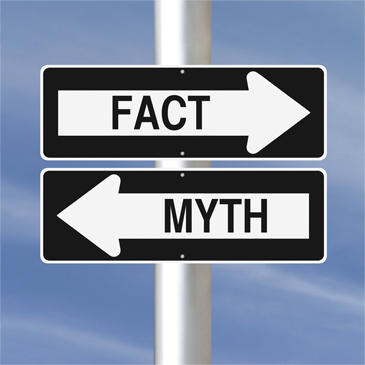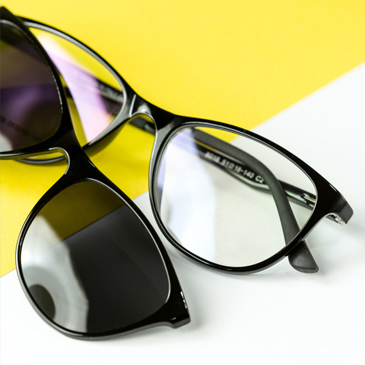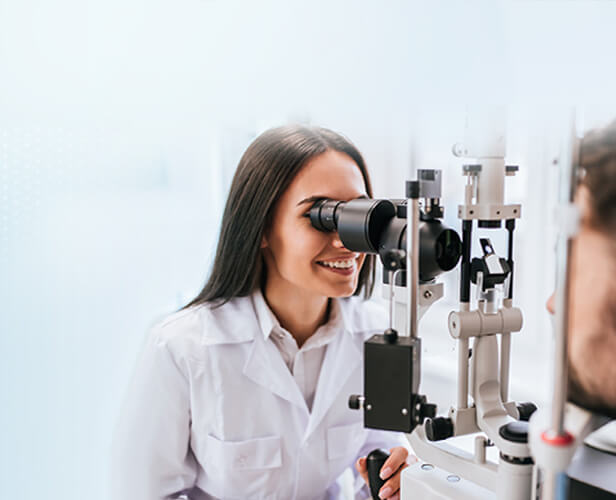Myths about Cataract
Cataract is a film over the eyes
Not true. Cataract is a loss of transparency of the lens within the eye. The normally transparent lens which is situated behind the Iris gradually loses its transparency due to aging, trauma, diabetes, etc and becomes cloudy. This causes vision to be cloudy too.

Cataract can be cured by applying eye drops
Not true. There is no proven medicine for curing cataract. Since cataract is mostly caused by aging, it is near impossible to cure it by external means. But this aspect is being researched. At the moment, the only proven treatment for cataract is surgery.
Cataract should be operated only after it has matured (ripened)
Not true anymore. In fact, cataract should be treated surgically at an early stage as the scope for complications are very minimal at that stage. Like all surgeries, cataract surgery too has complications that are more frequent if the cataract is mature or hard. As the person ages, there is a chance of developing diseases like diabetes, hypertension, heart disease, etc which might further complicate the situation. Besides, the longer one waits to undergo cataract surgery, the longer the period spent without adequate quality of vision thus decreasing the quality of life. Most of the falls which lead to fractures in the elderly are a direct result of poor vision. For example, a person with cataract may not be able to appreciate a puddle of water on the bathroom floor and is more likely to slip, fall and fracture a hip or arm.
After cataract surgery, one has to rest for 3 months
Not true. With modern cataract surgery, the rest period is very minimal. In most situations, a day's rest would suffice. But eye drops require to be applied for 4-6 weeks.
One has to take bed rest after cataract surgery
Not true. After modern cataract surgery, it is possible to return to work after a day's rest.
The vision gained after cataract surgery depends on the lens (IOL) used
Sometimes true. Whilst the vision that is gained after cataract surgery can be comparable with almost all lenses, the quality of vision has remarkable differences. All lenses have the required dioptric power to result in quantitative visual regain. However, the equality of vision depends largely on the lens material used, the filters present, and the wave front optimizations. Most lenses correct the vision for distance or near (monofocal). But many modern lenses correct Presbyopia ( to enable reading without glasses) and correct astigmatism too thus promising a near-total spectacle independence. Some lenses incorporate filters for UV rays and other harmful light rays.

One has to wear dark glasses after cataract surgery
Not true. Most modern lenses incorporate sufficient filters for preventing harmful light exposure.
Vision gained after cataract surgery remains good for the rest of the person's life
Not true. Other diseases like diabetes that causes diabetic retinopathy, glaucoma, etc can cause vision related problems if a regular ophthalmic evaluation is not done. Cataract surgery is performed on the lens. The cloudy lens is removed and a new lens implanted. Diseases occurring in the Cornea or Retina or a stroke can decrease vision afterward. Hence, it is important for diabetic persons to regularize the blood sugars and also to ensure an eye evaluation periodically as advised by the Ophthalmic surgeon.
All refractive errors are corrected by doing cataract surgery
Not true. Cataract surgery usually involves implanting a monofocal lens that can either correct the vision for distance or for near. Other refractive problems like Astigmatism and Presbyopia require special lenses.
But, with our latest LASER CATARACT SURGERY and BIO-OPTICS technology, we can assure spectacle independence to a vast majority of our patients.
Everyone who undergoes cataract surgery gets full vision
Not true. As previously stated, the cataract surgery removes the diseased lens and replaces it with a artificial lens. Persons who have other eye diseases like glaucoma, diabetic retinopathy, macular degeneration, etc will regain only that part of the vision which was lost due the cataract. Any vision loss caused by the aforementioned diseases cannot be rectified by cataract surgery, though the quality of vision improves.







